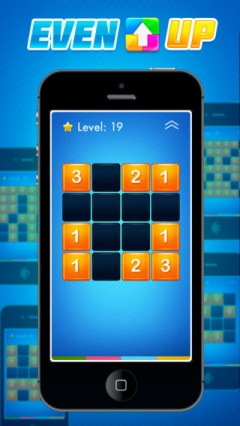Trending
Opinion: How will Project 2025 impact game developers?
The Heritage Foundation's manifesto for the possible next administration could do great harm to many, including large portions of the game development community.

Featured Blog | This community-written post highlights the best of what the game industry has to offer. Read more like it on the Game Developer Blogs or learn how to Submit Your Own Blog Post
Eddie Rhodes became a millionaire by cashing in on meaning in games. Is this what the game industry has become?

This article originally appeared on dashjump.com.

As far as game stars go, Eddie Rhodes comes across unusually blunt. Maybe the confidence came when his game attracted a following, became a cult hit, and starting making real money. Maybe it’s all a façade, carefully designed to fully exploit his exposure in the press. Maybe he was born with it.
Whatever the case, it’s well deserved. After only two years, Rhodes’ game Nexbit has exploded from personal project to major cultural phenomenon. Not content to just be a game maker, he’s proved himself a shrewd businessman as well, leveraging the game’s popularity into a personal fortune.
Impressively, Rhodes has achieved all of these milestones at the age of 22.
And Nexbit is his first game.
“I grew up playing thoughtful stuff like Michael Silverman’s I Wish, Alex Beachum’s Heavenly Droplets, Tom Astle’s Senstellar, a bunch of Minecraft-likes – mainly the classics, really. [My younger brother] Tom had a few consoles growing up, but I could never get into boxed games. With the tablet, it’s just a much more personal experience.”
Like most of his generation, Rhodes was entranced by tablet games from an early age. Echoing the popular sentiment of most game stars, he’s a strong opponent of the pay-to-play game model, citing the stifling effect it has on creativity and monetization.
 Nexbit developer Eddie Rhodes has big plans for the future.
Nexbit developer Eddie Rhodes has big plans for the future.
“Free is the natural state of games,” he says. “You don’t pay to play tag, or crosswords, or thumb wrestling, or whatever. Games want to be free.”
As a point of pride, he claims to have never paid for a game in his life. It’s not that he advocates piracy, he’s quick to clarify, but that he simply doesn’t see the point when there are already so many good games to play for nothing. It’s a philosophy that’s pervaded the design of Nexbit, and arguably a key driver for its success.
The First Bit Is the Hardest
Looking back, it seems obvious that someone would have combined dating apps and gaming in one package. But before its release in 2020, nobody had put it together.
“I was just frustrated with app dating, you know? Everyone I knew was using different apps and they were all kind of crappy, but we kept using them. And then I noticed we were all playing the same games, and figured, why not? Nobody had combined the two.”
In Nexbit, you start by making a profile, filling out some personal details and writing a brief statement about yourself. Next, you look for matches, both for potential people to date and to play games with. Once you either find a live match or schedule a time to play with someone, you start playing games together. And that’s where things get interesting.
Each game has both cooperative and competitive elements. Completing goals together lets you unlock new game types to play with your partner. Want to read past the first sentence of their bio? Complete three games together. Want to see the whole profile? Make it through five games. Want to get in touch to make a real life date? Finish seven games together and you can swap contact info.
The first games ‘couples’ play are basic puzzle games, inspired by a wide array of titles past and present. Finish a game together to move on to the ‘next bit’ – hence, Nexbit.
Of course, if you want to ask your partner out earlier, you can always pay to jump the line.
The Escapism Clause
In Rhodes’ own words, the game works because it leverages the one thing games actually provide for people: escapism. “People play games to kill time and escape from life – that’s it; any other answer is just rationalization. So why not make that escape work harder? Why not escape and better your life at the same time? It’s just more efficient.”
 One of many inspirations for Nexbit’s early puzzle game modes is Simple Machine’s Even Up, released in 2013 almost a decade ago.
One of many inspirations for Nexbit’s early puzzle game modes is Simple Machine’s Even Up, released in 2013 almost a decade ago.
And the best way to leverage this escapism, says Rhodes, is by making the most of what the successes of the past have to offer. What people respond to, he says – and what they open their wallets to the most – is a sense of personal connection that the bigger games gloss over.
“You need to go back and look at the real classic games, the Angry Birds, the Candy Crushes, and see what made people really get invested in those. They had the gameplay hooks – what they were missing were meaning hooks. Gameplay hooks get you a player’s money for a month. Meaning hooks get you a player’s money for a lifetime.”
Nexbit is unique, according to Rhodes, in how it adapts to the context of the players’ relationship as it forms. Certain game types only unlock when you and someone you’ve played with both indicate you’re officially in a relationship together, furthering the sense of shared experience. And since the game keeps detailed track of player metrics, it can provide one-of-a-kind anniversary notifications.
For example, couples can watch replays of the first game they ever played together, play special commemorative versions of their favorite modes, and share their special moments with their friends. These shared memories, created in-game, are Nexbit’s secret sauce. “Once you have those memories seeded, made in your game, they become sacred places to the relationship,” says Rhodes. “And those sacred places can be very profitable.”
For Rhodes, the future looks limitless. He’s hinted about expansions in the works, with more modes and in-game items to buy. He’s been tapped by the Singaporean government to incorporate the Nexbit model into the next version of that country’s national matchmaking system. And he’s got his eye fixed on the future of gaming.
“Think about it – we started with electronic toys on these wildly expensive, impractical pieces of equipment only designed for one thing. Just think about it – it’s ridiculous! We didn’t have any idea what worked, people just threw ideas around until something stuck. Now we really know how to make games – how to engineer user behaviors, how to drive retention, how to get your interaction loops to be cash-positive before you even make a prototype.”
“Gaming has grown up – and this is what it looks like.”
Ben Serviss is a game designer and producer at NYC indie developer collective Studio Mercato. Follow him on Twitter at @benserviss. |
Read more about:
Featured BlogsYou May Also Like